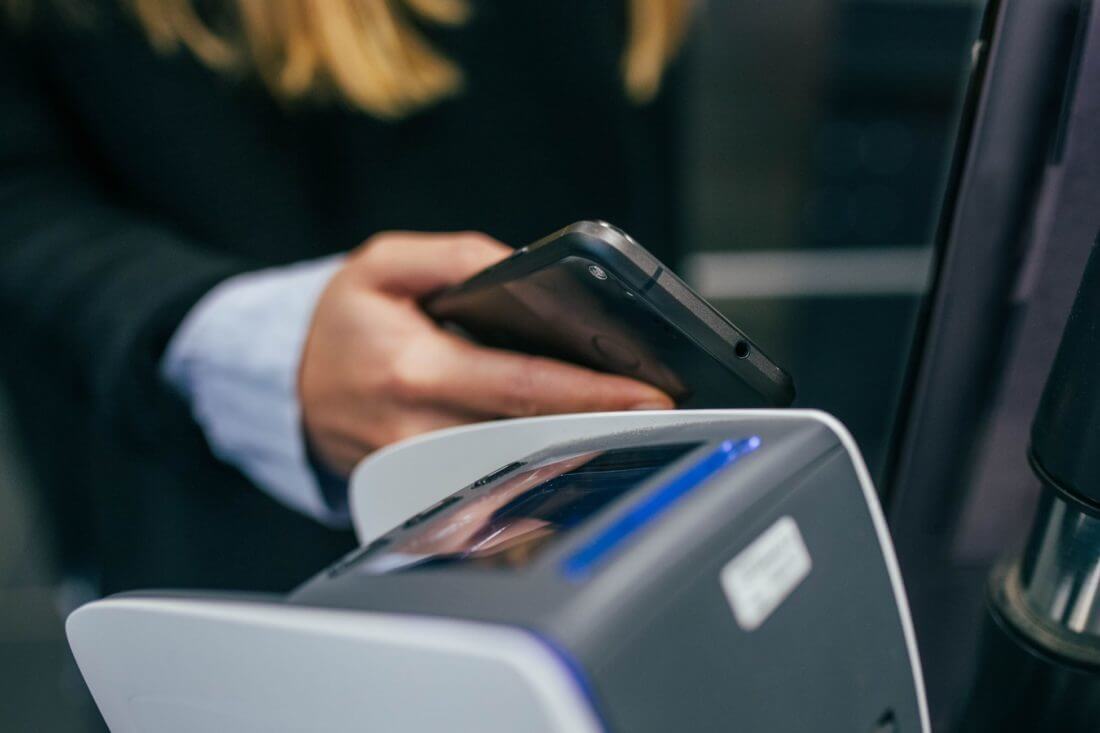Cashless payments are increasingly becoming the most popular payment method, although cash is still present. Paying with credit or debit cards is much more convenient and fast. If you run an enterprise, you surely already have or are in the process of getting a merchant account (MA). But what is a merchant account? Besides the fact that you need to have one, how much do you know about your options and the expenses associated with them?
What is a Merchant Account?
A merchant account is a type of bank account that allows businesses to accept payments in credit or debit cards. It acts as an intermediary, transferring money from your customers’ accounts to your business account once a payment is processed. Here’s how it works – when a customer pays for a product or service, the payment goes through a payment gateway to a credit card processing company. Then it goes through credit card associations (such as Visa, Mastercard, and American Express) before reaching the bank that issued the customer’s card. Each step of this process may involve fees, some fixed and some variable.
Merchant accounts often come with additional features for which you’ll pay extra processing fees, such as check processing, compliance with the Payment Card Industry Data Security Standard (PCI compliance), and online reporting tools. While these extras add to your costs, having a merchant service provider (MSP) is necessary to accept credit or debit card payments. This guide aims to explain how these accounts work, and how to manage your costs effectively.
| Term | Explanation |
|---|---|
| Customer | The person or organization that uses a credit or debit card. Their card information is entered online or swiped or inserted in person to start the purchase. |
| Merchant | A merchant that takes card payments. Merchants require merchant accounts to perform credit and debit card transactions through payment gateways. |
| Payment Gateway | A system that transfers card information between customers, merchants, and credit card processors. It securely takes and encrypts card details, authorizes transaction data, and notifies the merchant of transaction acceptance or rejection. |
| Processor | Also known as the credit card processing company, the processor manages transaction technicalities. It routes transaction information between the merchant, card network, and issuer to authorize, capture, settle, and transfer payments. |
| Card Network | Visa, MasterCard, American Express, and Discover support merchant-card issuer transactions. They supply card payment infrastructure and rules. |
| Issuer | The customer's credit or debit card issuer. The issuer verifies that the customer has enough money or credit to buy and sends the funds to the merchant's acquiring bank. |
How Does It Work?
When a customer swipes their credit card or debit card to pay, the card processor promptly forwards these transaction details to your designated merchant account. Then, your merchant account provider undertakes the crucial step of verifying the availability of adequate funds with the customer’s card issuer. Upon confirmation of funds, your merchant account provider promptly advances the funds to your business for that specific transaction and ensures seamless and efficient processing of payments.
How to Open a Merchant Account
In order to open a merchant account, businesses must follow a structured process with a merchant acquiring bank. This process involves partnering with an acquiring bank and ensuring your business meets specific criteria. Here’s a simple guide to help you understand how to open a merchant account and what to expect during the application process:
- Application and approval: Submit an application to the bank. They will evaluate factors like how long your business has been running, your financial history (including any bankruptcies or credit issues), and any previous merchant accounts you’ve had.
- Risk assessment: The bank will check if your business is prone to credit card fraud. This assessment can influence the fees you might pay.
- High-risk considerations: If your business is considered high risk, you might start with higher transaction fees to offset potential risks.
Credit Card Payments Processors
This is a step you cannot avoid. You will always need credit card processing services for your customers’ card payments. What CCPs do is confirm sufficient funds, and check if all the necessary conditions are met by your customer so that you can accept the transaction. They basically authorize the sale, and if all the requirements are met, the payment will be deposited from your customer’s bill to your business bank accounts.
What happens during the process is that interchange fees and other processing expenses will be deducted and the rest will be deposited to your bank record. Interchange fee goes to your credit card association, and the processing fee goes to your service provider. You can expect to pay around 3 to 5% of every transaction for such fees. On a smaller scale, this doesn’t seem like much. But if you process a lot of transactions each month, this can build up to a serious amount. Nowadays, a lot of merchant processing companies have online access that can help you track your monthly transactions. You can even save some money on printed copies of your monthly statements by requesting a digital copy.

What is Important to Know Before You Set Up a Merchant Account?
Although setting up an MA is pretty straightforward, you should inform yourself about different pricing schedules, contract terms, and features that different service providers will offer you. The market is very competitive and not all providers are the same. So not only you should do your research on the processor you’re interested in but you should also try to make a better deal for your company.
You can drain your resources if you choose a processor with high fees and rates. You may not have much choice regarding the contract period since most of them offer only 3-year contracts with an automatic renewal clause. If you choose, for any reason, to terminate your MA earlier than agreed in the contract, you will have to pay an early termination fee. In some cases, an early termination fee can amount to over $600. There are also liquidated damages. That is the penalty you have to pay for approximated charges that remain till the end of your contract, and it can cost you thousands of dollars.
Understanding the Fees
Your merchant account involves various fees and commissions, which can significantly affect your operational costs. Some of the key charges include:
- Transaction fees: Charged for each sale processed, this can be a fixed amount or a percentage of the transaction value, or sometimes both.
- Monthly statement fees: For the administration and provision of monthly transaction statements, your account may be charged a flat monthly fee.
- Gateway fees: If you accept online payments, gateway fees apply for the use of the payment gateway that securely transmits transaction data.
- Chargeback fees: When a customer disputes a charge and it’s returned to the card, you’re charged a fee for this process, known as a chargeback.
- Setup fees: Initial fees to set up your merchant account, which can vary significantly between providers.
- Monthly minimum fees: If your transactions do not meet a certain volume, you may be charged to make up the difference.
- Terminal fees: For businesses that require physical equipment to process card payments, there are rental or purchase costs for these terminals.
- PCI compliance fees: To adhere to the Payment Card Industry Data Security Standard (PCI DSS), you may be charged for compliance and security measures.
- Early termination fees: If you decide to close your account before the end of your contract term, you could face a penalty.
- Batch fees: For settling and processing all transactions at the end of the business day, a batch fee may be applied.
These fees vary by provider and some may negotiate on certain charges, so it’s important to understand the specifics of your merchant account agreement. Those commissions can add up to 3% of every transaction to your already existing charges.
An Internet Merchant Account
If you are making online sales, you will need an Internet merchant account that can act as a deposit for your online transactions. Such an account usually has higher expenses compared to the regular one. There is another problem you will encounter with online transactions. You will need a different internet account for every type of card you accept.
How to Avoid Termination Fee
Some processors are willing to exclude the early termination fee due to fierce market competition. You even have the possibility of month-to-month billing without long-term obligations and contracts. That means you will face no penalties if you choose to end the contract.
One of the potentially most dangerous encounters for your firm is with the providers’ sales team. Since many companies outsource services, you may encounter unprofessional and uninformed employees. Many of them won’t even know how to explain all the details of your contract, or they may even give you false information. While this can be hard to avoid, you can protect yourself. Read the entire contract carefully and ask professionals if you have any questions before signing anything. It is a long-term obligation, and you don’t want to be stuck in a 3-year contract that does you more harm than good.

What Are Payment Service Providers?
There is a new player on the market, and it’s called the payment service provider or PSP. Because MSPs proved to be expensive and long-term obligating, a few companies introduced this new service that emerged with the rise of online payments. These companies merge all their services into something that resembles one large MA, except that you wouldn’t have a unique merchant ID number. It has a lot of advantages that an MSP doesn’t provide, such as avoiding monthly and annual fees. Flat rate pricing simplifies processing rates significantly. They bill you for their services month to month, so when you decide to cancel the contract you won’t pay penalties. This method is also referred to as pay-as-you-go pricing.
When is PSP a Bad Solution?
While all of this sounds ideal, there are security issues you have to be aware of. PSP accounts can be shut down for any reason without notice. Even a single large transaction can freeze or shut down your accounts. They also provide poor instead of good customer service. If you are handling a larger number of credit card transactions, it is more important to have lower processing rates than lower MA fees. If your monthly transactions exceed 5000$, you will benefit more from a full-service MA. PSPs are a better solution for small businesses and seasonal business ideas.

What is the Best Gateway Solution for Your Business
If you don’t have any kind of terminal to accept card payments, you are going to have to set up one. Most of the MSPs will offer their own POS terminals. That is why you should set up your MA with the local MSP which can install the required technology faster and can address possible problems without engaging a third party.
If you are the owner of an online shop, you are going to have to integrate your merchant services solution with your shopping cart through a payment gateway. Many shopping carts have integration capabilities or plugins that will make this a lot easier to set up. Since every shopping cart and payment gateway integration is different, you will have to research this on both ends.
Payment Gateway Features
Payment gateways differentiate themselves with a variety of features beyond the basic necessities, including diverse payment methods, advanced billing tools, robust security systems, and detailed analytics. Instead of just card payments, modern alternatives like e-wallets have become more convenient, and contactless debit cards with specialized terminals meet evolving consumer needs. Security features play a critical role, especially for online transactions, with the top gateways offering sophisticated fraud detection and prevention measures to safeguard operations.
Businesses that operate on subscription models find great value in recurring billing tools, which allow them to customize plans and easily update subscription information. Furthermore, payment analytics provided by some gateways can offer valuable insights, helping businesses refine their services and achieve their objectives. These reports identify areas for improvement and guide strategic decisions, highlighting the benefits of choosing a gateway that offers a comprehensive set of features.
How to Setup and Edit Your Merchant Accounts
Setting up and editing your merchant accounts requires careful consideration, especially since you can’t sift through thousands of Merchant Service Providers (MSPs). However, it’s wise to investigate thoroughly the ones that catch your eye, ensuring they align with your business needs and offer competitive rates and services.
Learn From Someones’ Previous Experience
A good rule of thumb is to always check out the reviews from other customers. After finding the MSP that suits your company the most, you can start applying for an MA.
Setup a Business Profile
Setting up a business profile will determine the processing risk for MSPs when dealing with your company’s transactions. That includes answers to questions such as: How are you going to accept payments? What are your predicted monthly transaction amounts? What is your average ticket price and is your company seasonal or all year round?
How Will You Accept Payments
There are different methods. You should inquire about not just terminals but also check processing, e-commerce shopping carts, and wireless and mobile transactions. It all depends on the structure of your company and the type of transactions you will be dealing with the most.
What Volume Do You Plan to Process
If you already have an established enterprise that has processed transactions in the past, you won’t have a problem with getting this number. But if you are new in the business, try to predict how many transactions monthly you’ll have for at least the first six months. You get to this number by dividing total sales revenue by the total number of sales per month. For example, total revenue (100 000 USD) / total sales (10 sales) = 100 USD
What Kind of Enterprise Do You Own
A lot of enterprises have higher revenue during a specific time of the year. Many MSPs can offer you seasonal downtime, which can save you money during lower revenue months.

How to Apply for a Merchant Account
To apply, you need to provide information like business name, contact information, tax information, routing, and business bank account number. Some providers will expect you to submit a credit check. Here is a tip on how to apply for your MA – contact several providers. Why? Because you will have an opportunity to bargain with them based on the offers from their competitors.
Negotiate a Better Deal
What may surprise you is that you don’t have to accept the first offer you get. You can negotiate better terms for your company with sales representatives. They will usually try to push you to sign up for a broadly available offer, but you can try to negotiate a better deal that applies specifically to your needs.

Choose the Provider That Suits Your Needs
Setting up an MA is not very much an open-and-shut case. You shouldn’t chain yourself to the first offer from the first provider you stumble upon. This can very much affect how you will grow your venture over time. If you stick to some generic, expensive long-term contract, you may be faced with thousands of dollars of unnecessary expenses each year. This is the reason for the thorough research you should undertake from the beginning. Not all credit card processing companies have the same conditions and the same fees, and there is a possibility to negotiate better terms for your company than the ones you were offered.
Discover the power of seamless transactions with Merchant Chimp, your go-to credit card processing company. Elevate your business with our tailored solutions, such as our Discount program, and experience the difference today. Join us at Merchant Chimp, where we make every transaction count.




